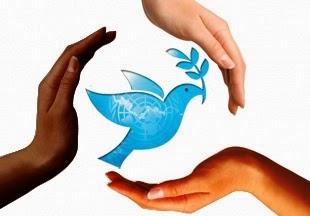Few days ago a colleague of mine asked me if I am a feminist. I stood for a while in silence confused, and then left her with her unanswered question. Somehow her question let me fell a shamed for not standing for feminism by answering positively her simple question and at the same time felt nostalgia to the old days when I was proudly declaring of my feminism ideology in spite of everything.
Now I have a fear to be labelled as a feminist, while it is almost clear that I am a feminist, however, my colleague question let me realize that I am on the first phase of having feminism phobia, and the main reason that I was being tamed by the negative reaction of men and women against feminism.
Since I was in college I have been called a man- hater, and when I was in Europe for couple of years, I told a male friend in an intellectual conversation on political thoughts that I am a feminist. He opened his eyes widely and asked if I am a lesbian. Besides, through my activism in Yemen on women’s rights, some men and women pointed out to me as a society destructor and homewrecker. When I quited activism, and had to join an International Organization that has good reputation of working on gender, and luckily I was part of the gender team at the organization. While I was supposed to be more strongly advocating for feminism, I unintentionally detached myself from feminism.

